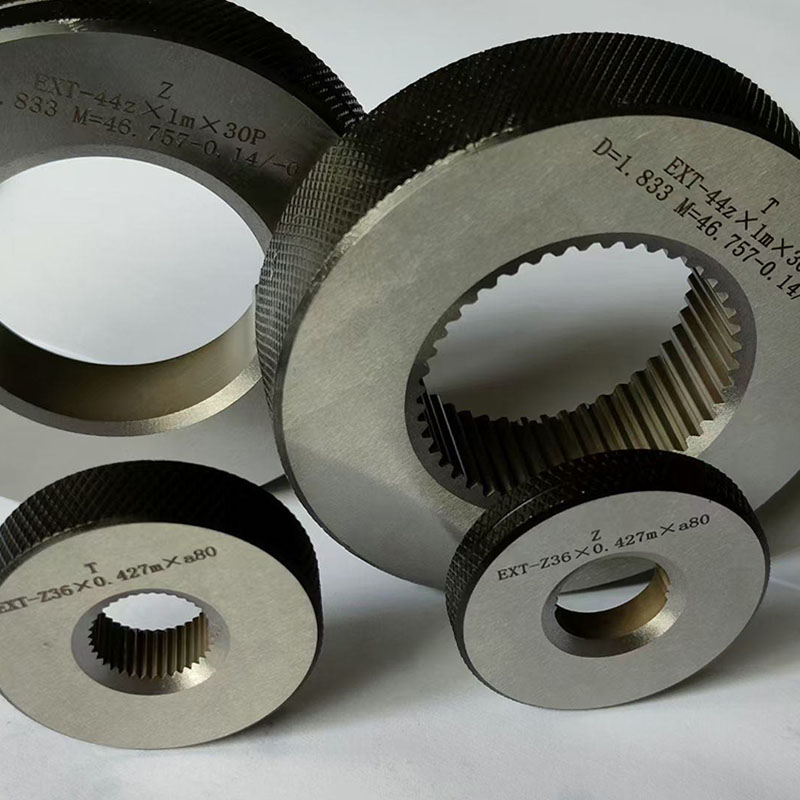12月 . 25, 2024 10:40 Back to list
Understanding the Function and Importance of Screw Thread Ring Gauges in Precision Measurement
Understanding Screw Thread Ring Gauges Importance and Applications
Screw thread ring gauges are essential tools used in engineering and manufacturing, particularly in the machining and quality control of threaded components. These precision instruments ensure that threaded parts meet defined specifications and tolerances, which is crucial for performance and safety in various applications. This article explores the design, function, and significance of screw thread ring gauges in modern manufacturing.
What is a Screw Thread Ring Gauge?
A screw thread ring gauge is a cylindrical tool made from high-quality materials, designed to check the external threads of a workpiece. It features precise thread profiles that correspond to the standards of various thread forms, such as ISO, UNC, UNF, and more. Typically, these gauges come in two types Go and No-Go. The Go gauge verifies that the thread fits within the required tolerances, while the No-Go gauge checks if the thread has exceeded tolerances, ensuring it does not exceed specified limits.
Design and Construction
The construction of a screw thread ring gauge is a critical factor in its performance. They are commonly made from high-speed steel, carbide, or other durable materials to resist wear and maintain accuracy over time. The gauge's threads are precision-cut using advanced machining processes, ensuring that the profiles match exact specifications. Calibration is another vital aspect; gauges must be regularly checked against certified standards to maintain their accuracy. This precision is what ultimately allows manufacturers to produce high-quality threaded components that fit together seamlessly.
Importance in Manufacturing
1. Quality Control The primary role of screw thread ring gauges is in quality control. During production, components undergo rigorous inspection to ensure they meet design specifications. By using these gauges, manufacturers can quickly identify parts that do not conform to the required standards, significantly reducing the chances of defective products reaching the market.
screw thread ring gauge

2. Interchangeability One of the fundamental principles of engineering is the interchangeability of parts. This means that components should fit together perfectly, regardless of where or how they were made. Screw thread ring gauges help to establish this interchangeability by ensuring that threaded parts adhere to standardized dimensions, making it easier to replace or assemble parts in machinery or consumer products.
3. Cost Efficiency While investing in high-quality gauges may seem costly upfront, they can save manufacturers money in the long run by reducing waste, minimizing the need for rework, and preventing costly recalls of defective products. By ensuring the quality of threaded components, manufacturers can maintain their reputation and customer satisfaction.
4. Safety Assurance In industries such as automotive, aerospace, and construction, the integrity of threaded connections is paramount. A failure in a threaded joint can lead to catastrophic results. By employing screw thread ring gauges, manufacturers can ensure the safety and reliability of their products, ultimately protecting users and workers.
Applications
Screw thread ring gauges find applications in various industries, including automotive, aerospace, machinery, and electronics. In automotive manufacturing, for instance, they are used to inspect components such as bolts and nuts that hold critical parts of a vehicle together. Similarly, in aerospace, where safety is non-negotiable, these gauges help ensure the reliability of threaded fasteners used in aircraft assembly.
Moreover, with the rise of advanced manufacturing techniques like additive manufacturing and CNC machining, the need for precise quality control has never been greater. Screw thread ring gauges are instrumental in these environments, ensuring that even the most complex threaded designs meet stringent industry standards.
Conclusion
In summary, screw thread ring gauges are vital tools that play an indispensable role in the manufacturing and quality control processes of threaded components. Their ability to ensure precision, promote interchangeability, enhance safety, and improve cost efficiency makes them crucial in various industries. As technology advances and the demand for quality products increases, the importance of these gauges will continue to grow, underscoring their value in maintaining high standards in engineering and manufacturing.
-
Why Metric Trapezoidal Thread is Ideal for Precision Motion ControlNewsAug.05,2025
-
The Unique Properties of a Block of Granite for Industrial UseNewsAug.05,2025
-
The Role of Flanged Y Strainers in Preventing Pipeline ClogsNewsAug.05,2025
-
The Importance of Regular Calibration for Master Ring GagesNewsAug.05,2025
-
How a Cast Iron Surface Table Enhances Accuracy in ManufacturingNewsAug.05,2025
-
Comparing Different Check Valve Types for Optimal Flow ControlNewsAug.05,2025
Related PRODUCTS









